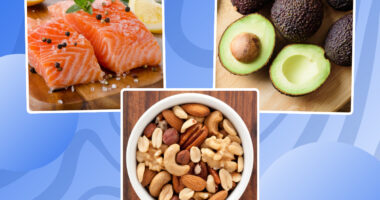
Certain foods can trigger allergies and exacerbate inflammation. Adopting a plant-based diet can help mitigate these issues.
“Let food be thy medicine and medicine be thy food.” – Hippocrates
In the pursuit of optimal health and well-being, the ancient wisdom of Hippocrates still rings true today. As we explore the intricate relationship between our dietary choices and our body’s inflammatory response, it becomes increasingly evident that what we eat can either fuel inflammation or pacify it. The path towards healing lies in adopting a plant-based diet, harnessing the potential to alleviate both allergies and inflammation.
Inflammation, though a natural and essential part of the body’s defense mechanism, can spiral out of control when triggered excessively or persistently. Certain foods can be culprits that can trigger allergies and exacerbate inflammation. Nidhi Nahata, a Nutritionist, Health Coach and Food Therapist, helps us understand foods that trigger inflammation and allergies in our bodies and how we can combat them.
Nidhi Nahata is also the Founder of JustBe, a whole food plant-based resto caf located in Bangalore.
Foods That Can Trigger Inflammation And Allergies
Sugar and Processed Foods: These foods are often high in refined sugars, unhealthy fats, and chemicals. Foods like processed meats, loaded with preservatives and saturated fats, not only cause inflammation but are also associated with an increased risk of allergies. Refined carbohydrates, found in sugary snacks and white bread, can rapidly spike blood sugar levels, prompting an inflammatory response.
Dairy: Dairy products, while rich in calcium, can be a double-edged sword. Many individuals exhibit sensitivity or intolerance to lactose or casein, the proteins found in dairy. These sensitivities can trigger allergic reactions and inflammation, making plant-based alternatives such as almond, soy, or oat milk more appealing for those seeking to mitigate these issues.
Fats: Trans fats, often present in fried and processed foods, are notorious for contributing to inflammation. These artificially created fats not only elevate harmful LDL cholesterol levels but also promote the production of inflammatory molecules in the body. Steering clear of foods containing trans fats can go a long way in managing inflammation and allergic reactions.
The Benefits Of Switching To Plant-Based Diets
“By embracing whole, unprocessed plant foods, we can actively work towards minimizing inflammation and allergic responses,” says Nidhi Nahata. She expounds:
Fruits and vegetables, abundant in antioxidants and phytochemicals, possess the power to neutralize free radicals and dampen the flames of inflammation. Berries, for instance, are rich in anthocyanins and have anti-inflammatory properties.
Leafy greens, such as spinach and kale, are packed with vitamins and minerals that nourish the body while combating inflammation.
READ RELATED: I Tried KFC’s New Snack Wraps and One Tweak Would Have Made Them Excellent
Legumes, including lentils, chickpeas, and beans, are another cornerstone of a plant-based diet. They are loaded with fiber and protein, which not only stabilize blood sugar levels but also help you maintain a healthy gut microbiome. A balanced gut microbiome, in turn, reduces inflammation and a lower likelihood of allergies.
Whole grains like quinoa, brown rice, and oats are integral to this dietary shift. Unlike their refined counterparts, these grains retain their bran and germ, boasting higher fiber content and essential nutrients. Fiber is a potent anti-inflammatory agent, promoting digestive health and providing a sense of satiety.
Nuts and seeds offer a plethora of healthy fats, including omega-3 fatty acids. These fats play a pivotal role in curbing inflammation and supporting cardiovascular health. Walnuts, flaxseeds, and chia seeds are particularly rich sources of these beneficial fats.
The nutritionist notes, “The journey towards healing through a plant-based diet doesn’t mean sacrificing flavor or variety. Embrace the vibrant world of herbs and spices like turmeric, ginger, and garlic. Turmeric, with its active compound curcumin, has garnered attention for its potent anti-inflammatory properties, potentially rivaling some anti-inflammatory drugs.”
Take away
Our dietary choices wield significant influence over our body’s inflammatory response and its susceptibility to allergic reactions. By avoiding processed foods, refined sugars, and unhealthy fats, and instead embracing a plant-based diet rich in fruits, vegetables, legumes, whole grains, nuts, and seeds, we can take concrete steps towards alleviating inflammation and fostering overall well-being.
“As Hippocrates’ wisdom resonates through the ages, it reminds us that the healing power of food is within our grasp a power that can shape a healthier, more vibrant future,” Nidhi Nahata remarks.
Remember, it’s important to consult with a healthcare professional before making any drastic dietary changes, especially if you have pre-existing health conditions.
Total Wellness is now just a click away.
Follow us on
Don’t Miss Out on the Latest Updates.
Subscribe to Our Newsletter Today!
window.addEventListener(‘load’, (event) => {
$(‘#commentbtn’).on(“click”,function(){
(function(d, s, id) { var js, fjs = d.getElementsByTagName(s)[0]; if (d.getElementById(id)) return; js = d.createElement(s); js.id = id; js.src = “//connect.facebook.net/en_US/sdk.js#xfbml=1&version=v2.3”; fjs.parentNode.insertBefore(js, fjs);}(document, ‘script’, ‘facebook-jssdk’));
$(“.cmntbox”).toggle();
});
});









